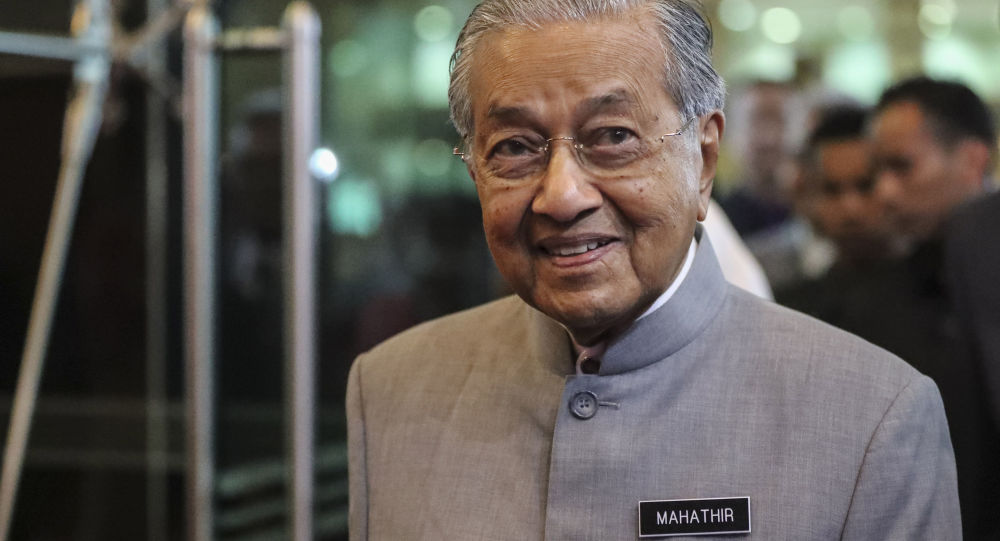Malaysian economy has been rocked by growing concerns that India will seek to restrict the palm oil imports ever since Prime Minister Mahathir Mohamad went on a rant against India at the United Nations General Assembly (UNGA) as he claimed that India has ‘invaded and occupied’ Kashmir.
Malaysia is the world’s second-largest producer and exporter of palm oil after Indonesia, and India is Malaysia’s third-largest market for the oil. Finally realising the possible consequences of locking horns with India, “If the (Indian) government launched a boycott or something like that, then we will have to work diplomatically or reduce the kind of action that they have taken,” Mahathir was quoted as saying by Bernama.
According to reports, in a form of protest against Mahathir’s utter disregard for India’s sovereignty in Kashmir, India is planning to curb imports of Palm oil from Malaysia which could have dire consequences for the Malaysian economy.
Modi government is planning substitute Malaysian palm oil, which makes a major portion of imports from Malaysia with trade of around 3.9 million tonnes in just the first nine months of 2019 making India the largest buyer of palm oil from Malaysia, with supplies of edible oils from countries such as Indonesia, Argentina and Ukraine.
About 96-98% of palm oil consumed by India is imported. India currently imposes a 40% import duty on crude palm oil and 50% on refined palm oils. However, shipments of refined palm oils from Malaysia have since January been levied a 45% duty under the Comprehensive Economic Cooperation Agreement (CECA) with Malaysia, leading to a surge in refined palm imports in the first seven months of 2019.
A trade imbalance exists between India and Malaysia which stands at around a whopping $12 billion, with imports from Malaysia to India being on a rising trend over the past few years. The Free Trade Agreement signed between the two governments in 2011 had also given a massive push to the bilateral trade. Since the same year custom duty on more than 1200 products has also been reduced or removed completely.
However, given the aggressive nature of Malaysian PM, any move by India to revise its Palm oil import policies will significantly impact the related industry in Malaysia. India had recently increased the import duty on Palm oil by 5 % and any further increase would once and for all cripple Malaysian palm oil exports to India.
Malaysia’s exports to India were worth $10.8 billion in the fiscal year that ended on March 31, while imports totalled $6.4 billion and Malaysia has now also offered to reduce the trade imbalance to diffuse tensions between the two countries.
Restricting imports from Malaysia would not create a shortage of edible oils in India either as Indonesia is eager to sell more and more palm oil and India could also increase imports of soy oil from Argentina and sunflower oil from Ukraine to offset any drop in palm oil shipments. This approach could devastate Malaysia’s palm oil industry.
India has made Mahathir regret his move in no time as Malaysia, after hearing the possibility of India restricting palm oil imports has moved to ease the tensions by offering to increase its imports from India. Malaysia is considering raising imports of raw sugar and buffalo meat from India in a bid to placate the latter amidst reports that India is considering to restrict palm oil exports from Malaysia as Prime Minister Mahathir went on a pro-Pakistan rant at the UNGA.
Only a leader with absolute disregard for trade and economy would decide to anger his country’s third-largest export destination for palm oil exports as in 2018, palm oil exports to India amounted to $1.63 billion. The palm oil industry is one of the biggest employers in the Southeast Asian country of 32 million people and India’s move to restrict its exports will have widespread ramifications for the country.
Malaysia has woken up to the possibility that strained relations with the current Indian government will take it nowhere especially when Chinese economic imperialism is on the rise in Southeast Asia. The Modi government’s conscious efforts have forced Mahathir to soften his stance and it would be interesting to see what Mahathir does if India decided to restrict palm oil exports.
